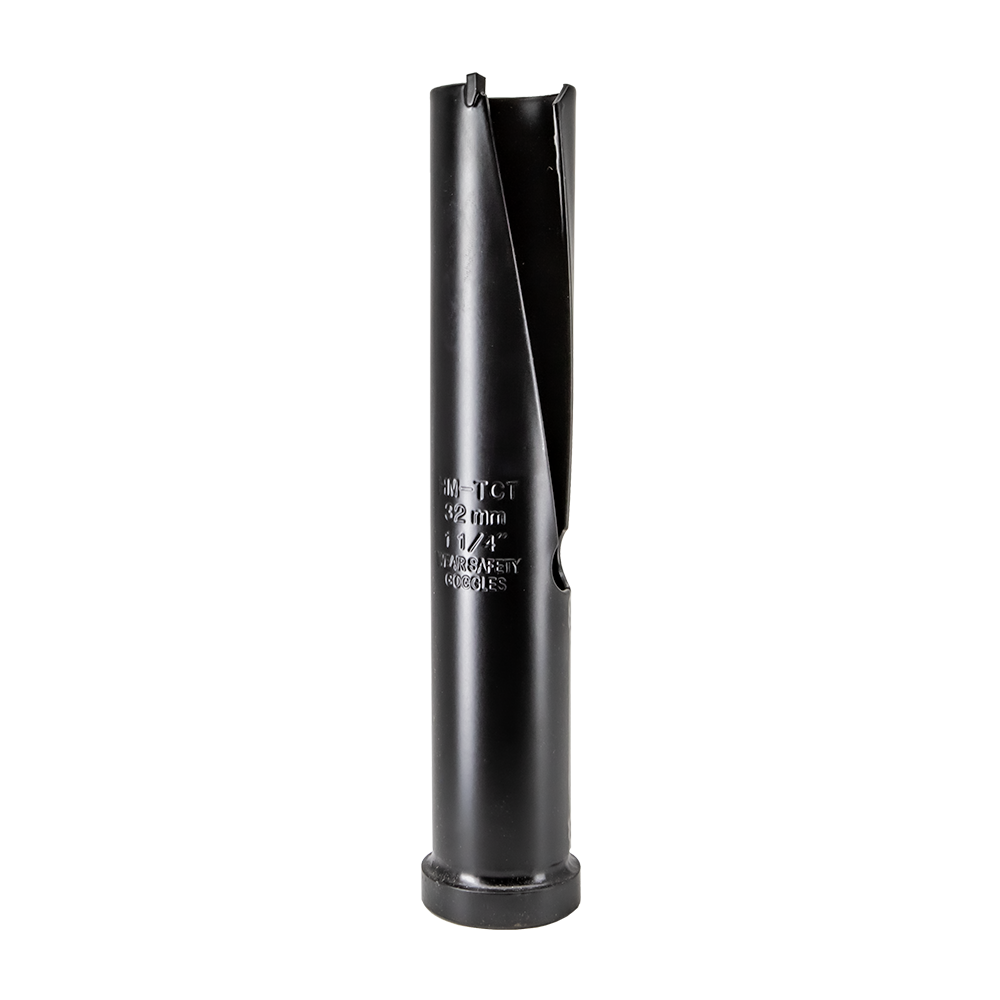To reduce the risk of injury, read the instruction manual and follow the safety regulations of the power tool you will be using with your Spyder accessory. Use personal protective equipment. Always wear eye protection. Protective equipment such as a dust mask, non-skid safety shoes, protective apparel and hearing protection should be used in appropriate conditions to reduce the risk of personal injury. WARNING: Operating the tool without wearing proper protection may result in serious injury. To reduce the risk of explosion, electric shock, and property damage, always check the work area for hidden gas pipes, electrical wires, and water pipes when making blind and/or plunge cuts. Before each use, check that the hole saw is free from damage and excessive wear. Discard hole saw if damage is noticed or suspected as this can cause excessive friction, saw binding, kickback, create dangerous flying debris and/or create other unsafe situations that may cause injury. Hex-based pilot bits are intended to be used with hex-based arbor adapters and hole saws. Use a pilot bit which is correctly sized for the hole saw being used. Always be sure that the pilot bit extends beyond the cutting edge of the saw; for deep cut hole saws, the pilot bit should extend at least 1” beyond the cutting edge of the saw. Follow the recommended operating speed for the saw size and the material being cut. Use the proper pilot bit and hole saw for your material. Only drill materials that are listed on the product label. Use a drill motor that is equipped with a support handle. Start cutting with a light forward pressure. For cuts that are square to the surface, start the cutting process with the saw square to the material being cut so all teeth begin to cut at the same time. This will help prevent premature wear and damage to the saw. Feeding the saw in and out or using a slight circular rocking motion may assist in clearing material shavings from the hole being cut. When sawing in wood, finish the hole from the opposite side to prevent splintering. Once the pilot bit has broken through the other side, you can use this hole to guarantee you are in line with where you have already started cutting.
